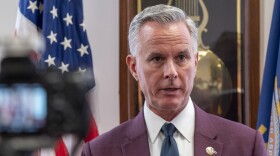-
Kansas Senate passes bill scrutinizing free lunch families, dodging challenges from some RepublicansThe governor opposes the bill despite one of its pieces meeting a policy priority.
-
After enthusiasm swelled behind the idea, the policy has hit several major bumps on its way to becoming law.
-
Kansas is one of 12 states that haven't passed Erin's Law. Advocates want that to change.
-
Federal law requires schools to verify free and reduced lunch eligibility for a random sample of recipients, but a new bill would require it for every student who receives a free lunch. One school official says the change would turn two months of work into a year-round responsibility.
-
A recent study gives a dire snapshot of the teaching profession. Why are so many teachers leaving — or thinking about it?
-
State auditors urged Legislature to find new way of determining at-risk student aid
-
Applicants would have to foot the cost of a background check, or a school district could cover it.
-
He announced Monday that his office is accepting applications to integrate the program into K-12 public schools.
-
Democratic Gov. Laura Kelly is asking for civility and compromise in the face of national political divides. She starts her final session in office with a Republican supermajority that can override her if it holds together.
-
The bill has support from more than two-thirds of the Kansas Senate, including leaders from both parties.

Play Live Radio
Next Up:
0:00
0:00
Available On Air Stations










